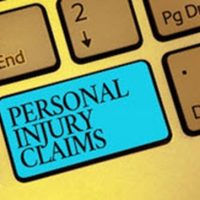Evidence You Can’t Use In Your Personal Injury Case

In a personal injury case, you may think that any kind of evidence that you have that will help your case can be used in your personal injury case. But there are exclusions to the type of evidence that can be used and some of those exclusions are things that may surprise you.
Here are some things that people commonly want to use in their case to help them win, and which sound like they should be able to be used–but they often are not.
Remedial Measures – When a defendant fixes something or repairs a dangerous condition on their property many accident victims think of this as a “smoking gun.” After all, what better evidence could there be that something was broken or dangerous than the fact that it had to be fixed after an accident?
But generally this kind of evidence is inadmissible in trial. The reason is because of public policy. If a defendant knew that fixing a dangerous condition could be used against them in trial, the incentive would be to never fix anything, as it could be seen as an admission of liability. The law doesn’t want people to be afraid to make their property safer.
Settlement Offers – Often, at the scene of an accident or shortly afterward, the defendant may make an offer to settle. That may be formal, by an insurance company conveying a formal offer, or informal, such as when another driver just asks if they can “pay your expenses and make this go away.”
Either way, settlement offers are inadmissible, and can’t be used against the person or Defendant that made the offer. The court wants to encourage people to settle cases–not to be afraid of making settlement offers.
Habit – Let’s say you file a negligent security case. You find out that for the last month, the store where you were attacked and injured, had no security guards. Can you use the fact that the store routinely, previous to your accident, had no security guards to your advantage? The answer is no–you can’t show habit, or a recurring pattern that existed before your accident, made it more or less likely that something was done or that something happened, on the date of your accident.
Character or Bad Acts – Many cases involve “he said she said” situations. If the other person is a drug dealer, a criminal, or just does something really bad, it would be helpful to use that to your advantage–does the jury really want to believe the word of someone that has a criminal history, or who beats his spouse, or does something else like that?
You cannot use any of that, unless it’s directly relevant to a fact in the case. Saying someone else is wrong or negligent just because they are a bad person (even if they may in fact be bad), is not allowable evidence in a personal injury case.
Call our Boston personal injury lawyers today at The Law Office of Joseph Linnehan, Jr. at 617-275-4200 for help in your injury case if you have been a victim of any kind of injury. We can help.
Sources:
scholar.google.com/scholar_url?url=https://heinonline.org/hol-cgi-bin/get_pdf.cgi%3Fhandle%3Dhein.journals/sdlr34%26section%3D43&hl=en&sa=X&ei=V_rCYrTxH_-Ty9YPo6Gi8A4&scisig=AAGBfm17IHu3Vd7fusjLj8CJdaU6t3JzOg&oi=scholarr
law.cornell.edu/wex/subsequent_remedial_measures
